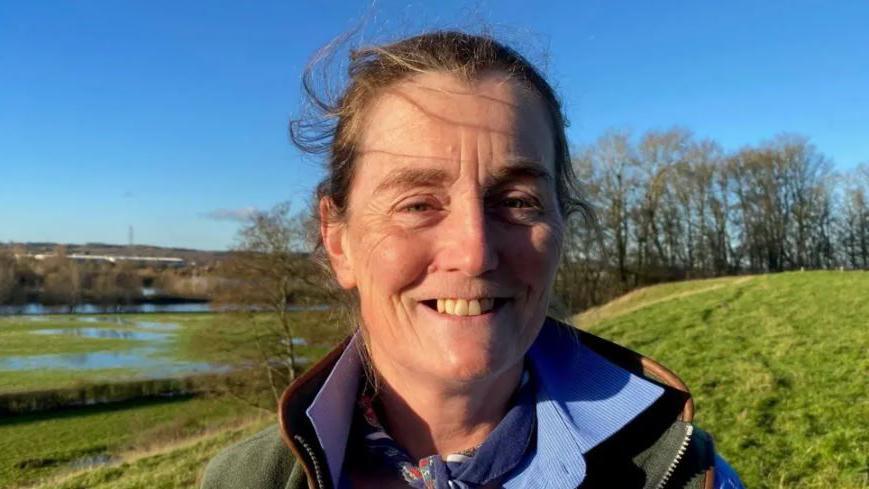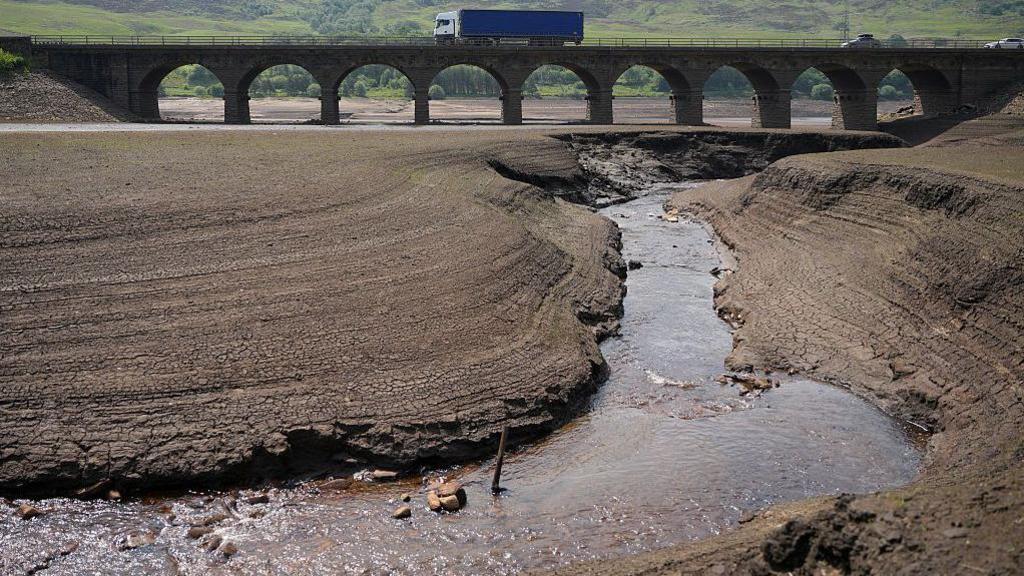'I don't know what the cows are going to eat next'
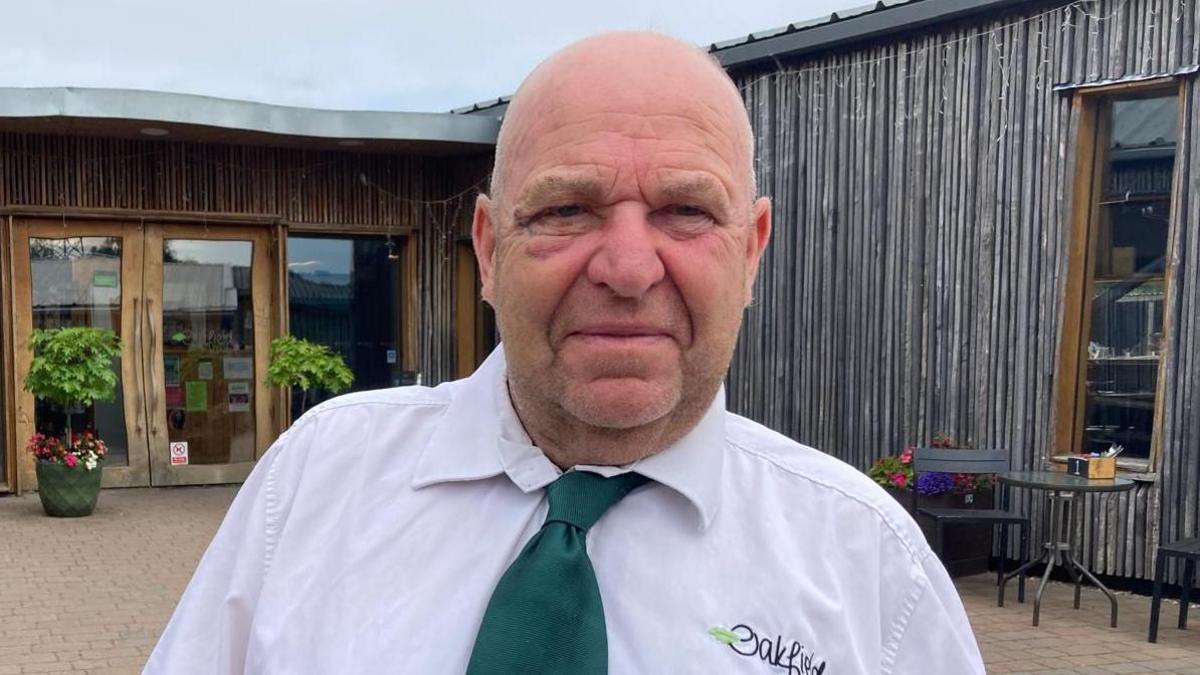
Andrew Wint runs a farm, a butchers and restaurant on the same site
- Published
Farmers in Derbyshire have said their yields of grass and crops for their livestock are down by half on what they typically harvest due to drought.
The National Drought Group has declared the current water shortfalls in England as a "nationally significant incident".
Andrew Wint, 64, co-owns Oakfield Farm with his wife near Ilkeston and has a restaurant, shop and butchers. The meat produce they sell is sourced from their working cattle and sheep farm.
Speaking to the BBC, he said: "We don't know what the cows are going to eat next. We've already had one period where we were putting bales of hay out for the cows to eat which are next winter's fodder."
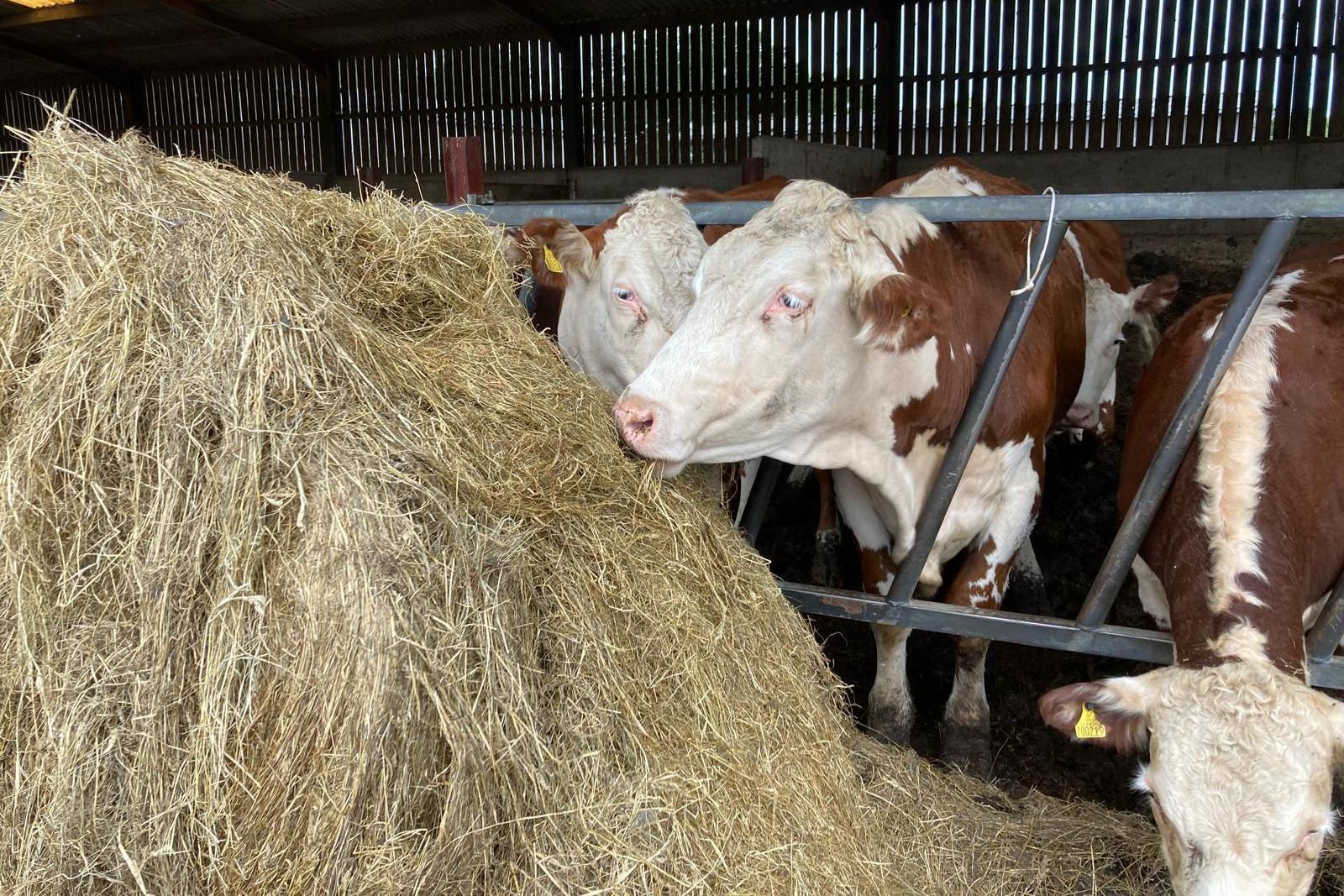
There is concern over the future availability of cow feed due to the ongoing drought
Fodder is food, usually dried hay or straw, for cattle and other livestock.
According to the Environment Agency, July was the sixth consecutive month of below average rainfall across England.
Mr Wint has been running the farm for 27 years and says farmers are always "at the mercy of the weather".
"The crops we are storing for winter fodder are at 50% to 60% of what we would normally get," he said.
"To make that worse, we're having to feed some of it back to the cows now to keep them going when they should be eating fresh growing grass."
He added he was concerned about the financial impact this could have on farmers.
"If we're short [on fodder] and everybody else is short... prices will be extortionate," he said.
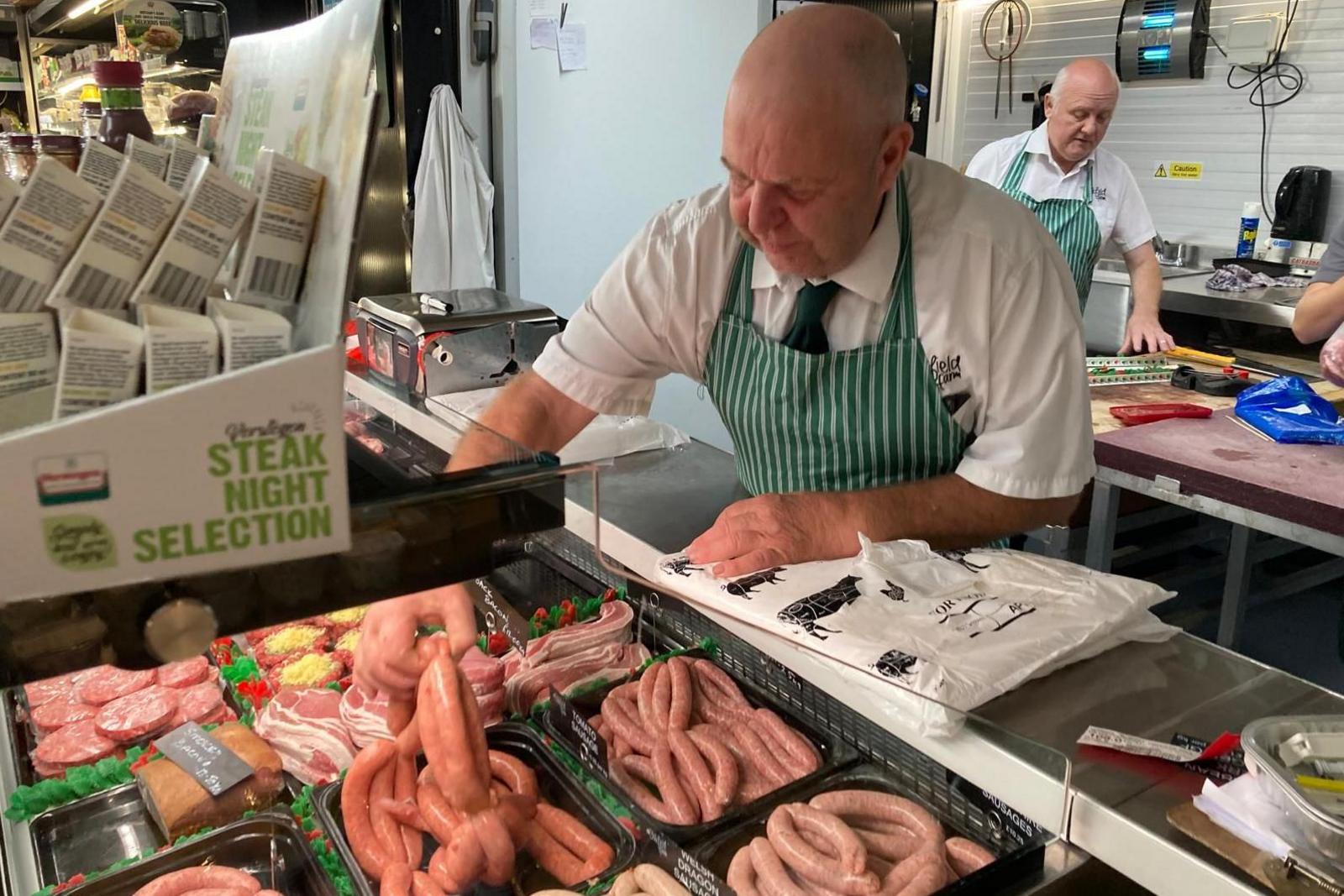
The National Farmers' Union (NFU) said the drought could cause food prices to increase
Andrew Critchlow, Derbyshire's county advisor for the National Farmers' Union (NFU), said farmers across the county were affected and "all are feeling the pressure".
According to the latest figures from the British Retail Consortium, external, food inflation was at 4% in July and is expected to increase to 6% by the end of the year.
"I think it will feed through into food prices on the shelves," he told the BBC.
"One of the drivers for [the] last inflation figures was being driven by increasing food costs and they seem to have stabilised, but it looks like they could be going up again."
Low fodder stocks
Mr Critchlow added: "Growing your own feed for your cattle and sheep is much cheaper than buying it in and particularly this year, trying to buy in forage, will be more expensive than normal because it's short for everybody."
He believes the changing weather patterns experienced this year "emphasises how fragile food security is," and said the NFU was "calling upon the government to recognise food security and make sure we have policies in place that promote food production in this country".
Mark Elliott, partner at Bagshaws - which operate at Bakewell Market - said: "It will not be an easy time for the livestock sector as regards to produce.
"Fodder stocks throughout our region are low. Any fodder that comes on the market in this region is going to be a dear price if you can find it."
The East Midlands continues to be in a state of drought - which was declared in July.
Get in touch
Tell us which stories we should cover in Derby
Follow BBC Derby on Facebook, external, on X, external, or on Instagram, external. Send your story ideas to eastmidsnews@bbc.co.uk, external or via WhatsApp, external on 0808 100 2210.
Related topics
- Published11 August
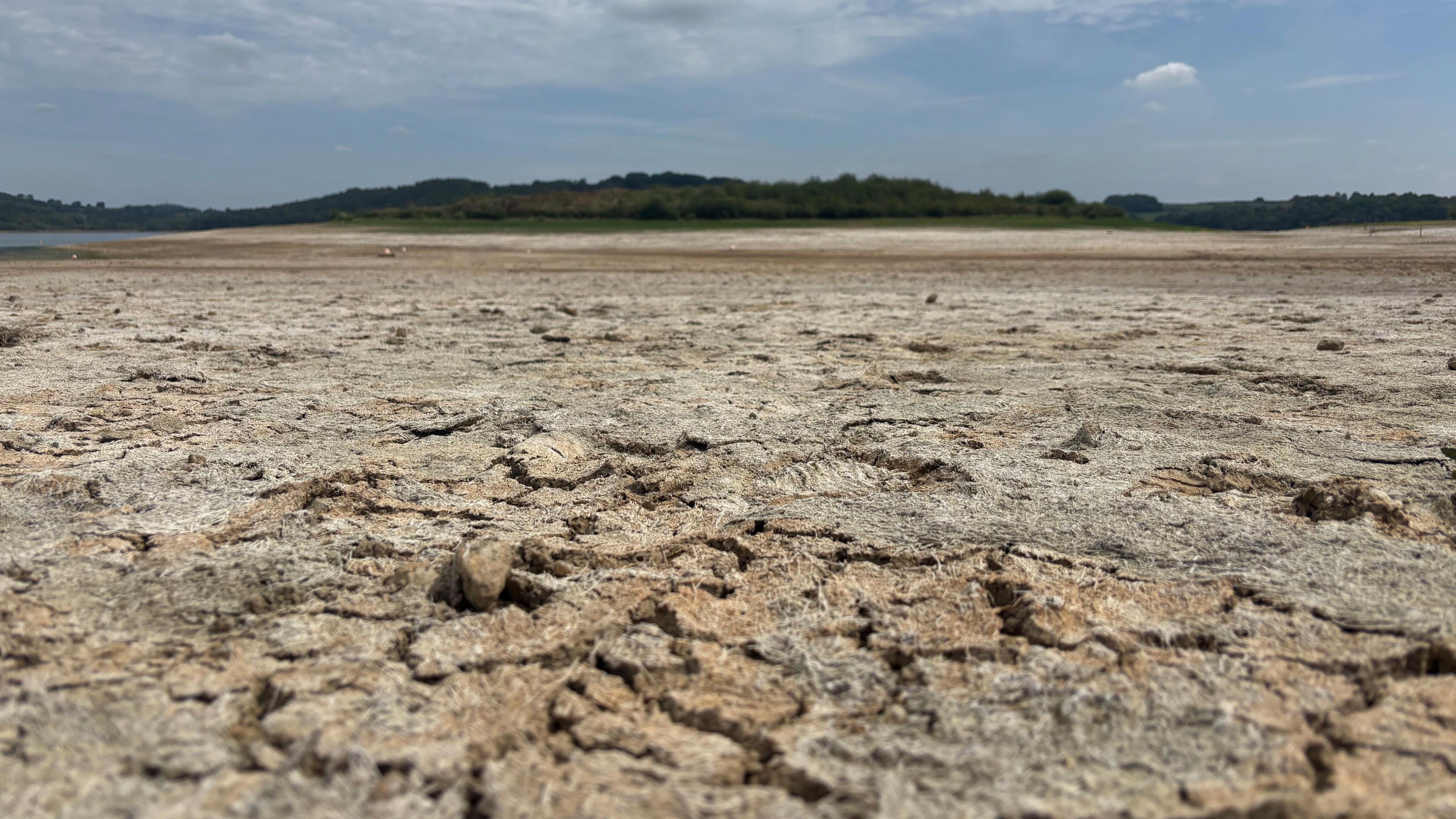
- Published22 December 2024
